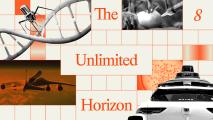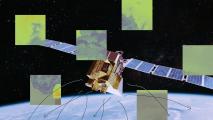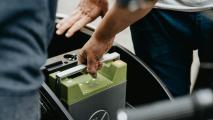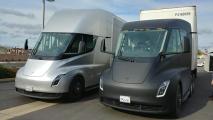
Energy
Energy powers civilization. Developing technologies that can deliver abundant, sustainable energy is the challenge of our time and the promise of our future. Failure is not an option.
More
Boom’s supersonic jet flies for the first time
Boom Supersonic just flew its XB-1 supersonic jet for the first time, bringing it a step closer to revitalizing super-fast commercial travel.
Moving trees north to save the forests
Scientists are exploring how to adapt forests for climate change, transitioning them to a warmer future by planting new southern seedlings.
Reducing pesticide use while increasing effectiveness
AgZen has developed a system for farming that can monitor exactly how much of the sprayed chemicals adheres to plants, in real time.
Startup is building a giant sand battery in Finland
A massive sand battery will help a Finnish town end its reliance on oil for heating, aiding the transition to a clean energy future.
More water pressure means shorter showers, UK study finds
University students used less water during their showers when they had more water pressure — and they could see a clock.
9 ways AI is helping tackle climate change
Existing AI systems include tools that predict weather, track icebergs, and identify pollution, all of which can help fight climate change.
Flowers grown floating on polluted waterways can help clean up nutrient runoff and turn a profit
Flowers grown on inexpensive floating platforms can help clean polluted waterways and even make a profit from cut flower sales.
How marine permaculture could revolutionize ocean farming
Marine permaculture could contribute to ecosystem restoration and pollution reduction, as well as empower local communities.
AI solves huge problem holding back fusion power
Princeton researchers have trained an AI to predict and prevent a common problem during nuclear fusion reactions.
Doomerism’s “tipping point” and why existentialism isn’t the solution to the climate crisis
We can’t afford to lose optimism over averting the worst consequences of this crisis; without it, we’re trapped in a response of inaction.
AI for agriculture: How Indian farmers are harvesting innovation
India’s farmers combat climate change, pestilence, and financial burdens, with AI-driven initiatives offering transformative solutions.
Fusion startup plans to shoot space junk with lasers
Japanese startup EX-Fusion plans to test whether lasers it is developing for nuclear fusion can remove space junk from orbit.
Google AI is searching the world for methane leaks from space
Google will provide computing resources to MethaneSAT, a project to identify climate-harming methane leaks from space.
How electron beams could jumpstart the nuclear industry
Electron beam welding could accelerate manufacturing of small modular reactors, helping make nuclear power a part of our clean energy future.
Mega solar farms could make it rain in deserts
A new study suggests that gigantic solar farms could be used to create “heat islands” that make rain locally.
Cobalt-free batteries could power cars of the future
A new lithium-ion battery that includes a cathode based on organic materials could offer a more sustainable way to power electric cars.
Fusion reactor break world record in final experiment
The JET tokamak set a new world record for generating energy from nuclear fusion during its final experiment.
Battery electric trucks offer emission cuts of 75-85% over their entire life cycle
A civil and environment engineer weighs in on whether electric trucks are our best bet to cut road transport emissions.
A new way to swiftly eliminate micropollutants from water
Scientists at MIT are using zwitterionic hydrogels to sustainably capture both organic and inorganic micropollutants from water.
Get inspired with the most innovative stories shaping the world around us.






















